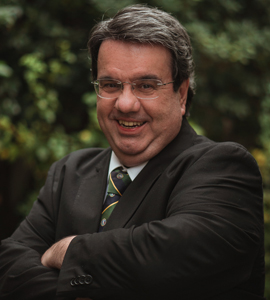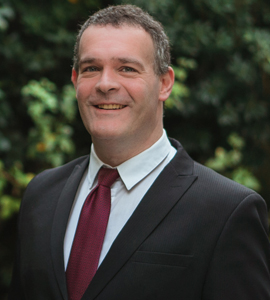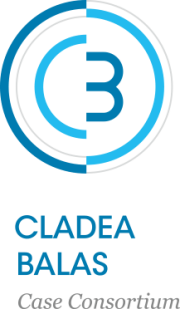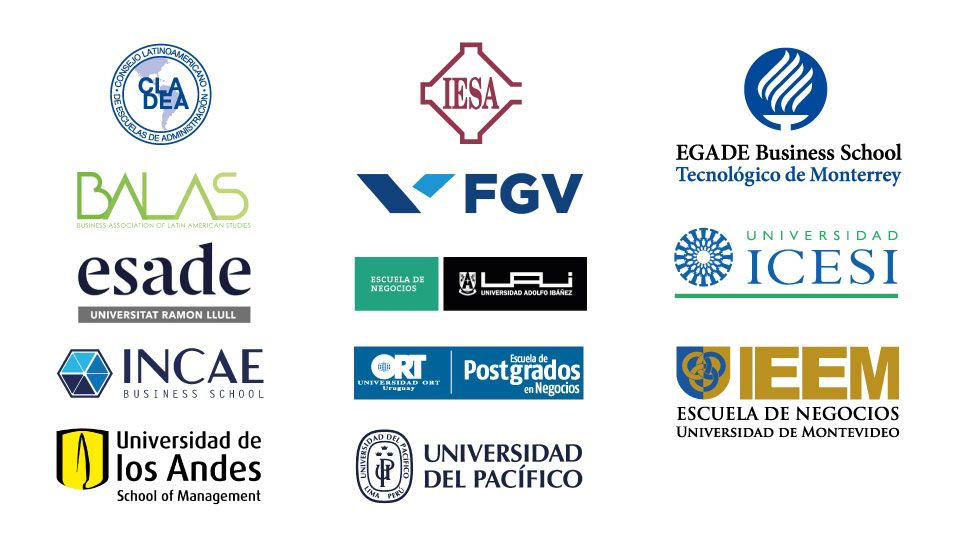Celsia: Strategy and Orange Culture
Para ver el caso en el sitio de HBP haz clic aquí
Disciplina. Comportamiento organizacional
ICESI’ case collection
Abstract
On Monday, May 25, 2020 Ricardo Sierra, CEO of Celsia -a Colombian electricity generation, transmission and distribution company- was about to enter a meeting with Claudia Salazar, leader of the department of Human and Administrative Management. The objective was to review the company’s successes and prospects in terms of organizational culture (known internally as Orange Culture), amid two challenges: the COVID-19 pandemic and the growing demands of the country’s energy market. A mandatory preventive confinement measure to control the COVID-19 crisis had been decreed in Colombia two months earlier, and it was expected to be extended indefinitely. For Ricardo Sierra, the situation merited careful analysis. The measure altered the interaction and conduct of its employees and posed immediate changes in the company’s practices. It also affected thousands of jobs and occupations and began to be reflected in a reduction of income for Colombian households and in the reduced capacity of low-income customers to pay bills. Simultaneously, the confinement was changing the energy consumption patterns of households and increasing demands from Celsia’s customers for continuity and quality of energy service. The meeting provided an opportunity to address two issues that Sierra considered fundamental: How to keep the pillars of the Orange Culture alive during the lockdown? And in that context, how to use the Orange Culture as a support to continue to contribute to the good performance, effectiveness and competitiveness of the company? In the development of the case, students must apply models and theories of organizational culture to characterize Celsia’s culture, to identify the main expressions of the cultural change proposed by Sierra and to recognize the key factors that favored such change. Likewise, students must propose recommendations that would allow the company to face the challenges posed by the pandemic and by new conditions in the Colombian energy market.
StoneCo POSTCOVID-19 PANDEMIC: (Too) Fast and (Too) Furious?
Abstract
StoneCo was a fintech that entered the market in 2014 with an initial focus in the payment solutions for SMBs. In 2018 it held the largest Brazilian initial public offering (IPO) on the Nasdaq, achieving a valuation of USD 9 billion at the close of the first day of trading. Its strategy was based on expanding from a pure payments business to a complete financial services platform for SMBs, which was labeled ABC (Acquiring, Banking, Credit). The company’s rapid growth rate faced a setback when its credit operations expanded too quickly between 2020 and 2021. The company had granted loans to customers with weak financial guarantees in an unfavorable external scenario, during the pandemic, when stores were opening and closing due to lockdowns, and amidst a relevant change in the Central Bank´s regulation regarding implementation of the registry of receivables. As Chairman of the Board of Directors, Andre Street needed to consider whether the mistakes found in credit operations would not be repeated in other areas. Was StoneCo. running too fast? Was the Board of Directors properly guiding the company’s growth strategy? This case explores the roles of the Board of Directors and its relationship with the top management team of the company.
Compañía Azucarera Valdez
Abstract
In October 2021, during an unseasonal rainstorm, the Compania Azucarera Valdez management team met to discuss the implications of a fundamental decision it needed to make: whether to end 20 years of sustainable sugarcane production using a unique biological control model and move to an integrated pest control model that included chemical insecticides. Gabriel Hernández, director of agriculture, stated that the change would increase profits by raising yields and reducing costs, and that the current biological controls were not as effective as they should be. Conversely, Paula Chacón, sustainability director, said that it could destabilize the ecosystem and generate more economic losses than benefits. Mario Goncalves, commercial director, mentioned the impact this could have on the company’s brand positioning and its “de- comoditization” strategy, and the work they would need to do on the commercial side of things to offset these changes. He did, however, recognize the need to improve the company’s financial results and invest in improving agricultural practices and strengthening the brand. The next board meeting was drawing near, and the management team needed to produce a concise proposal on how the company would be managed from 2022 onwards, and how it would increase its income by 2025.
Pepperoni Lovers: A Negotiation Simulation
Para ver el caso en el sitio de HBP haz clic aquí
Disciplina. Estrategia
Universidad de Los Andes’ case collection
Abstract
Pepperoni Lovers is a negotiation exercise between two actors, buyer and seller, for a pizzeria chain and a premium producer of delicatessen meats. The owner of the pizzeria has a pressing need, as his regular supplier of pepperoni has recently gone out of business and the pizzeria has pepperoni stocked up for a little less than two weeks. For the owner of the Toscana Delicatessen, the negotiation offers the possibility of securing a buyer on a large scale. This case allows students to negotiate six issues simultaneously and apply strategies for prioritizing issues in order to achieve a mutually satisfactory agreement for both companies.
Webuycars: Finding the key to new growth in South Africa
Abstract
The case focuses on Faan van der Walt (as protagonist), his brother Dirk, and WeBuyCars, a large second-hand car dealership in South Africa, which has become a dominant player in the market through the exploitation of blue ocean principles. WBC is a secondhand car dealership in South Africa that was established by two brothers in 2001. The company managed to thrive in an otherwise unattractive industry by firstly focusing on the space between two markets (na- mely private sellers of vehicles and dealerships), and, later on, expanding into complimentary activities and markets. By introducing activities that added value for customers and by removing transaction costs for customers, WBC created a blue ocean market for three different customer segments: sellers of cars, private buyers of cars, and dealerships that buy cars. WBC has been tremendously successful in the South African used car market; it has an extremely powerful and trusted brand and commands an 8% share. Since its establishment in 2001, WBC has grown on average by 50 to 60% per annum for the last 19 years.
Troubled Spain: Leading organizational changes through networks and design
Para ver el caso en el sitio de HBP haz clic aquí
Disciplina. Administración general
Universidad de Los Andes’ case collection
Abstract
James Reid, the newly appointed GM of Troubled Spain, has been given a mandate by the CEO of Troubled Inc. to turn the subsidiary around within six months. Troubled Spain has experienced several years of poor performance that cannot be explained by either sluggish demand or lagging technology. The case provides information about interviews that James had with several employees, describing the role of the employee and giving insights into the issues that they see the company facing. These interviews are complemented by three charts prepared by consultants that James hired to conduct an internal audit of collaboration, communication and informal leadership in the organization. James needs to transform the organization within six months; however, this implies changing relationships that have been developed over decades and clarifying roles and boundaries that have been blurred over many years. The case challenges students to take James’ position and identify the issues of Troubled Spain to develop an action plan in order to address the challenges facing the company. James needs to address: 1) issues concerning Troubled Spain’s formal structure, 2) issues regarding its informal structure, including leadership issues, and 3) issues stemming from the combination of both formal and informal features. Case B provides information about what happened next and may be distributed at the end of the session.
Swimmer’s Headphones
Para ver el caso en el sitio de HBP haz clic aquí
Disciplina. Finanzas
Universidad de Los Andes’ case collection
Abstract
The case describes a capital budgeting dilema for a new the finance of a new product in a technology firm: Swimmer’s headphones. By reviewing a series of emails and attachments, we learn that the protagonist, the recently hired Financial Manager responsible for presenting the decision to the board of directors must construct a capital budgeting valuation model that explicitly incorporates the project risk factors and then make a recommendation to the board.
Publicar en CBCC
«Un buen caso permite al participante vivir y aprender de la experiencia directiva desafiante que se relata. El publicar un caso a través de la CBCC ha permitido superar muchos de los obstáculos que se plantean en el proceso. Los aportes de los revisores y la edición, con sus visiones críticas, objetivas y profesionales, mejoran notablemente la calidad del producto».

Leonardo Veiga
Profesor de Economía Política en el IEEM, Uruguay
Proceso de revisión
«Destaco el proceso de revisión por parte de colegas de otros países, sumamente valioso para la mejora del caso, en particular su comprensión fuera del país de origen. Para los participantes, brinda la seguridad de trabajar sobre un caso que logrará sus objetivos de aprendizaje, gracias al rigor con que se trabaja en el desarrollo y evaluación sobre la nota de aprendizaje».

Pablo Sartor
Profesor de Análisis de Decisiones en el IEEM, Uruguay
Riqueza en la evaluación ciega
«Los autores tienen un riquísimo intercambio con los revisores ciegos».
Enrique Kramer
Profesor Universidad ORT Uruguay, Uruguay
CBCC:
Aliado de las
organizaciones que
promueven la metodología
de caso en Iberoamérica
Coordinación Editorial
Correo electrónico: cap.adm@uniandes.edu.co
Universidad de los Andes, Bogotá, Colombia




